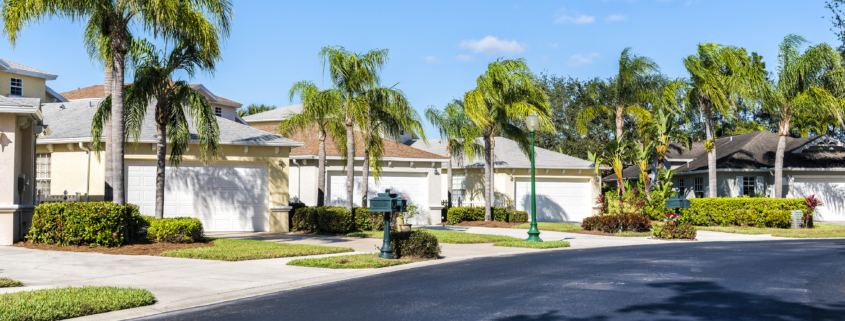If you live in a gated community and someone who doesn’t live there trespasses and commits a crime, there may be some question as to who can be held responsible.
If a trespasser breaks in and steals something or assaults a resident, who can be held liable? There are a few answers – we will discuss them below.
Property Owner/Manager
The manager or property owner of your gated community promised a certain level of security, so it makes sense that they might be held liable for a breach of that security.
But before jumping to that conclusion, you will need to check the terms of your lease (if you rent) or contract (if you own). You may have waived your rights to sue in a situation like this.
If there was an issue with security or the gate, they should let the residents know. If they failed to make the community aware of an issue (like the gate being broken) then they may be held liable for negligence. It’s the property manager’s responsibility to keep the community maintained to a certain standard, and to let residents know if that standard is not currently being met.
You may also be able to hold the property owner or manager liable if there was a trend of this type of crime in the area and they failed to disclose that information to the community.
Landlord/Unit Owner
If you’re renting from a landlord or owner of a unit, their negligence may be to blame. If they failed to provide proper security for the entrance to your unit or property, then you may be able to sue them for damages.
Homeowners Association (HOA)/ Community Association
In a case that reached the Supreme Court of Florida in 2015, an HOA was held liable for a crime committed by a trespasser because the HOA failed to maintain the security of the perimeter of the property.
In this case, two adults were murdered and robbed inside their gated community while the gate was broken. This set a standard for these entities to potentially be held liable for not keeping up the security of a gated community.
Maintenance Company
The maintenance company could also be held liable for people trespassing in your gated community.
If they failed to fix the gate or an alarm or a lock somewhere that allowed a trespasser to enter the premises, they failed to do their duty and could be held liable for negligence, especially if they failed to make these issues known.
Common Ways Trespassers Sneak into Gated Communities
How do trespassers even get into gated communities? There are many ways they can get in, but here are a few common avenues.
Tailgating.
Tailgating is when a car follows another car through the gate before it closes. This is one of the most common ways that nonresidents can sneak into gated communities.
Although most communities warn about tailgating, the reality is that residents do this, too. It is common for residents to follow the car in front of them through the gate rather than wait for the gate to close and open it again on their own.
The fact that residents do this makes it harder to tell when someone is breaking in when they tailgate. If someone tailgates in through the gate behind you, it could be a neighbor, but it could also be a trespasser planning to commit a crime.
Taking advantage of broken security equipment.
Another way trespassers can sneak into a gated community is by taking advantage of broken security cameras or sensors. If the security cameras along the perimeter of the property are visibly broken, or it is common knowledge that they don’t work, the community runs the risk of having someone deliberately sneaking in knowing that they won’t be caught while entering.
This can also happen with broken security equipment like gates or gate barriers such as “arms”. If the gate is broken and stuck open, or the arm is broken, then it is extremely easy for a trespasser to drive or walk right through the entrance to the property without seeming out of place.
Think about it – if the gate is stuck open and you see a car drive through it, that could be a criminal breaking in, or it could be someone that lives across from you. It’s so difficult to tell who is a resident and who is a threat when the equipment that is designed to keep the community safe is broken.
Tricking or manipulating a security guard.
A trespasser can lie and convince a security guard that they are a resident, a guest of a resident, or a delivery driver to get past them.
Most security guards do take their job seriously, but some can be too trusting and are easily manipulated. Unfortunately, criminals who are intent on breaking into a gated community will take advantage of that.
If your community has a security guard, be sure to make your preferences known for visitors. Some guards may require calling a resident and getting permission for their visitor or delivery driver to enter.
If not, your security guard should have some kind of protocol for when nonresidents try to enter the community. They may require a sticker or pass of some kind on the car to enter the property.
Talk to your security guard or property management about how your community can add steps to make the entry process safer.
Did a trespasser assault or rob you in your gated community? We can help.
If you were assaulted or robbed by someone who was trespassing in your gated community, Lytal, Reiter, Smith, Ivey & Fronrath can help.
An experienced Florida premises liability lawyer will talk through your situation with you and help you determine whether or not you have a case. If you do, they will help you develop a plan of how to proceed.
Call (561) 655-1990 today to schedule a free consultation with an attorney.




